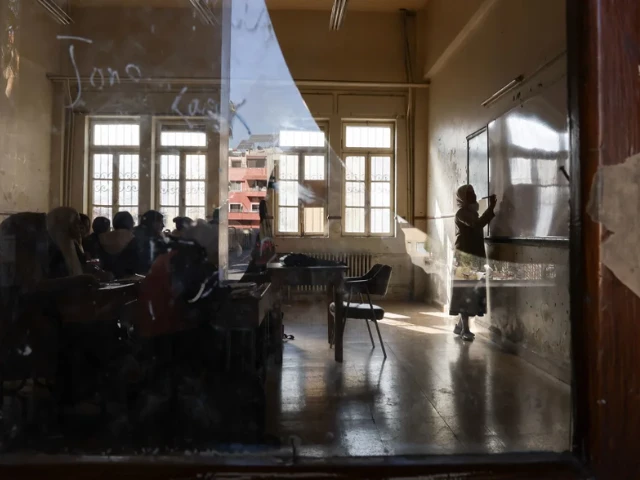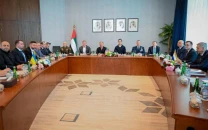Syrian school curriculum changes under new rulers spark controversy
Calls for protests arise over the curriculum's exclusion of scientific theories and Assad-era references.

Syria’s new rulers have unveiled changes to the national school curriculum, sparking widespread concern and protests.
The new curriculum, posted on the Ministry of Education’s Facebook page, reflects a marked shift toward Islamisation, omitting references to the Assad era and introducing controversial amendments.
Key changes include replacing the phrase "Defending the nation" with "Defending Allah," a move seen as aligning education with a more religious outlook. Moreover, the curriculum has removed topics related to evolution and the Big Bang theory, while erasing references to ancient Syrian gods and the statues associated with them. The curriculum overhaul also downplays the legacy of Queen Zenobia, the legendary ruler of Palmyra.
The most significant changes, however, focus on the removal of content associated with former President Bashar al-Assad. Poems celebrating Assad and his father Hafez have been excised from Arabic language lessons, while the Syrian revolutionary flag has replaced the old regime's flag in textbooks.
Despite the uproar, Education Minister Nazir al-Qadri has sought to downplay the significance of these changes. He stated that the curriculum would remain unchanged for now until specialised committees can review it. Al-Qadri further clarified that the revisions were limited to removing content that glorified the Assad regime and correcting “inaccuracies” in Islamic education.
While some Syrians have welcomed the removal of Assad-era content, the new curriculum’s shift towards a more Islamic identity has triggered alarm among civil society activists. Critics argue that the changes were implemented without broad societal consultation and fear that they signal a wider authoritarian move towards erasing Syria's secular past.
Activists have called for protests ahead of the new school term, demanding that all sections of Syrian society be consulted before further changes are made to the educational system. They argue that such sweeping alterations to the curriculum reflect the new government’s top-down approach and undermine promises of inclusivity and national dialogue.
The interim government, led by the Islamist group Hayat Tahrir al-Sham (HTS), insists that the curriculum changes were necessary to remove inaccuracies and to better align education with Islamic values. This administration, which has been in power since Assad’s ousting, faces a growing challenge in balancing national unity and religious identity, particularly in a country still reeling from years of conflict.
The transitional government has stated that the changes are in line with Syria's revolutionary ideals, but the controversy surrounding the curriculum amendments highlights the ongoing tension between maintaining historical continuity and redefining Syria’s identity in a post-Assad era. Activists and many members of civil society remain sceptical, calling for an inclusive approach to policy-making that represents the diverse communities of Syria.
The debate over Syria’s educational system is far from over, with many calling for greater transparency and dialogue to ensure the curriculum reflects the country’s complex history and varied cultural identities.



















COMMENTS
Comments are moderated and generally will be posted if they are on-topic and not abusive.
For more information, please see our Comments FAQ